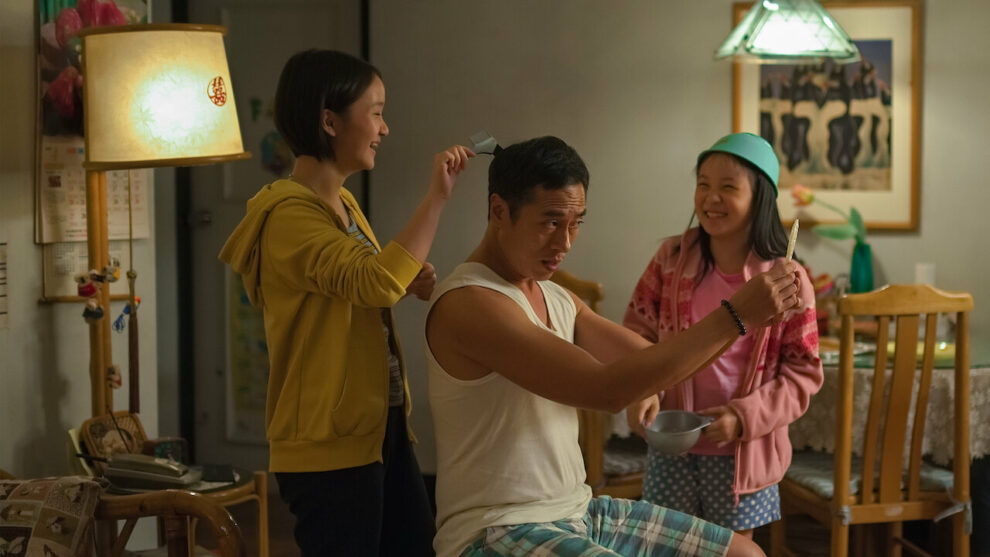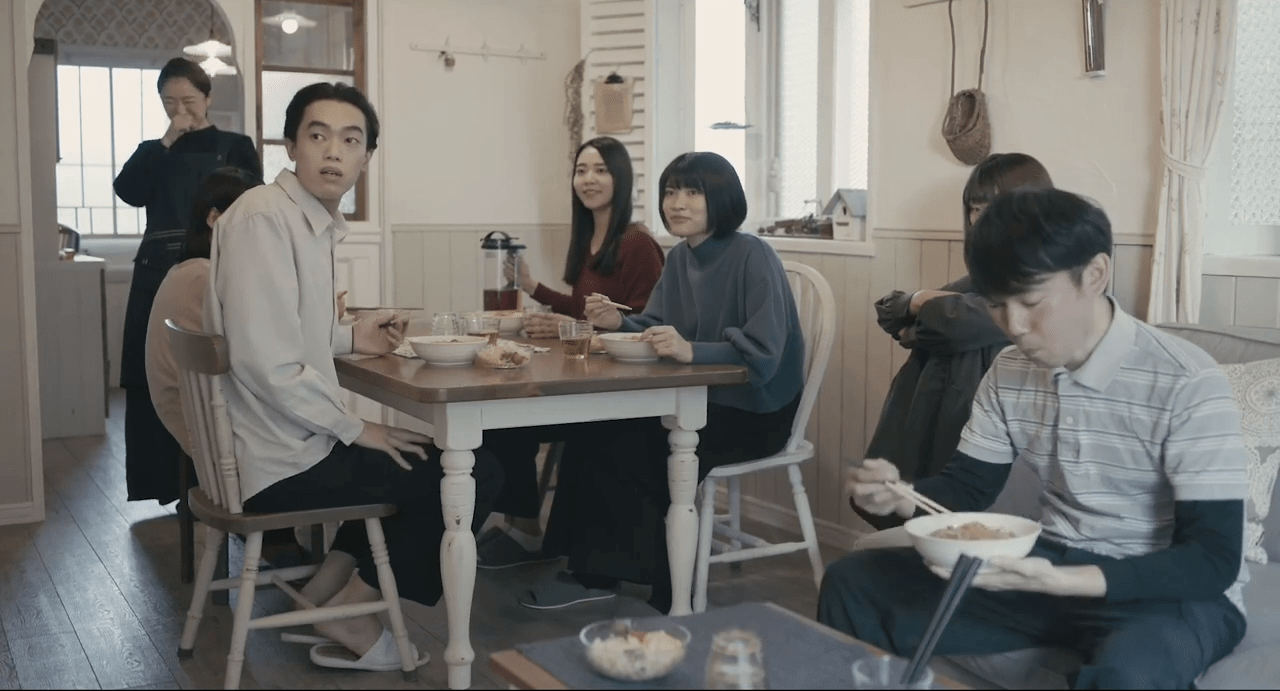Semi-autobiographical story of director Fiona Roan Feng-i, “American Girl” had 10 nominations at Golden Horse, getting awards for 5 (Cinematography, Audience Choice, Best New Director, Best New Performer, FIPRESCI) in one of the most successful movies of 2021, which eventually found its way to Netflix.
The story takes place during the 2002-2004 SARS outbreak. Fen Liang and her sister Ann have to return to Taiwan from the United States with their mother, Lily, after she is diagnosed with breast cancer, in order to seek help from her husband, Huay. The two girls, even though they speak Mandarin, find it quite hard to adapt to the new environment, particularly Fen, who had already successfully adapted to the previous change, becoming a straight A student in the US, and now has to change her ways once more, even though she is only 13. Their mother's medical treatment is quite harsh and takes a toll on her, and expectedly, on the family, while father Huay tries to balance all the issues, but also finds it quite hard.
Although not sure how many of the elements of the story are based on reality, Fiona Roan Feng-i definitely places her protagonists in a setting that can only be described as impossible. It is not just the moving to another country, which is always quite hard, and even more for kids, it is also the fact that four people have to learn to live together for the first time, while one of them has a potentially terminal disease in the middle of a pandemic. Expectedly, finding a balance in the midst of these situations is impossible, with Roan revolving her narrative and guiding her drama through them, in order to both analyze her characters and make her audience empathize with them.
Also of note are the differences between the two countries, as presented through two central systems, the health and the education one. And while the former seems to be much better, with Lily getting top notch care constantly without having to pay a fortune, the case is rather different in the latter. It is not only the bullying the two girls experience as outsiders, it is also the way the Taiwanese system is almost specifically grade-centric, with the students placed in an actual hierarchy solely based on their grades. Fen, who already has some issues with her Mandarin, experiences the whole thing in the harshest fashion, getting from the top in the US to the bottom in Taiwan, while her teacher does not miss a chance to belittle her, not to mention hit her, in a corporal punishment that seems quite common for the time the story takes place in.
At the same time, Fen, who wants to go back to the US, has no one to turn to in order to seek help for her problems, as her sick mother is also experiencing various stages of depression, and her father is just trying to keep the family afloat financially. That she also has to take care of her sister is essentially the last straw, with the way the whole pressure eventually leads to violence, both verbal and physical, being one the most impactful sequences in the whole movie.
At the same time, it is also the part of the story that finally provides a relief to all the piling pressure, essentially allowing Roan to give a positive message, that, despite their problems, families will always be there for each other. The comment is somewhat romanticized, but at the same time, provides a very satisfying closure to the story that also prevents the movie from concluding as a hardcore melodrama.
Also of note is the way Roan reconstructs the Taiwan of the era, with her presentation being both accurate and realistic, and the work done in the production design and the costumes being top notch. Giorgos Valsamis's cinematography captures the aforementioned through an approach that is both realistic and impressive, with his framing essentially being part of the narrative, and the coloring mirroring the overall mood of the movie. Zekun Mao's editing results in a mid-tempo that suits the overall aesthetics, while at 101 minutes, the movie does not overextend its welcome in any way.
The acting is also on a very high level. Caitlin Fang as Fen is exceptional in a rather hard role that has her being pinned down physically and psychologically almost constantly, and her delivering with a sense of measure that is usually found in much more experienced actors. Karena Kar-Yan Lam as Lily is also quite good in presenting her deteriorating mentality, while Kaiser Huang as Huay is convincing in both his kind and patient moments and in the ones he loses his temper.
Even if a bit excessive in its drama, “American Girl” is an exceptional movie that shows the difficulties of reverse diaspora in a rather realistic fashion, while carrying enough drama to deem the movie quite entertaining.

















